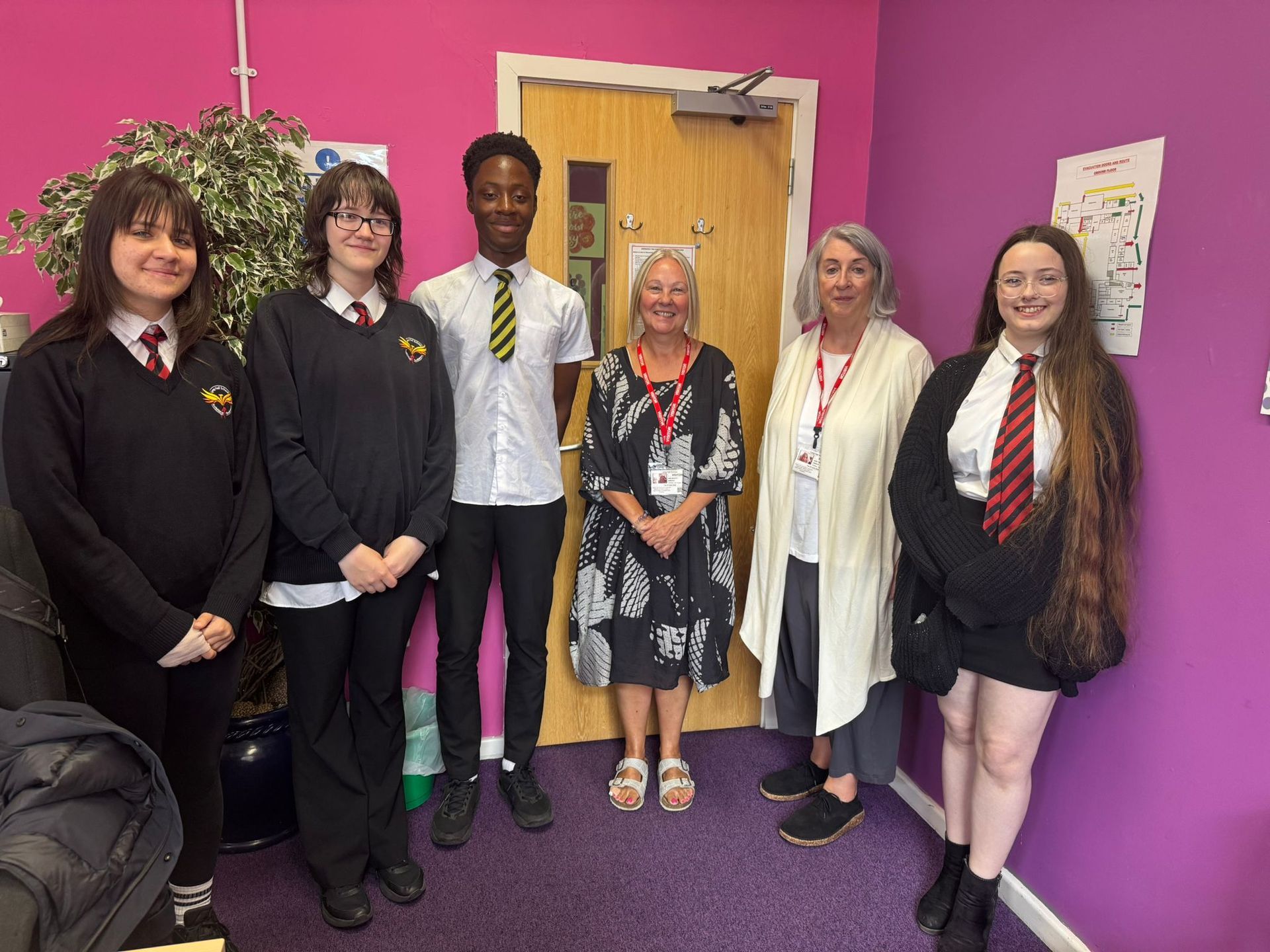UNESCO ASPnet Schools Coventry
This week our CEO Ann and Jude (SSF Ambassador) visited schools in Coventry and heard about the wonderful work that students are doing to foster peace and community connection, as part of Coventry Arts Week.
We visited Lyng Hall school in the morning and met with Ms Hagan and four of the schools UNESCO ASPnet ambassadors.
They told us all about their recent project. The students took their art and poetry to the 80th Anniversary symposium in Ypres and Dunkirk.
They shared with us some of the poetry they had written together with the students on the field trip and some of their own poems too. They also shared their future plans for working with their local primary school on peace and community.
We also had the privilege of joining Ms Hagans class where they were looking at Caliban’s tale. Here is one of the students work
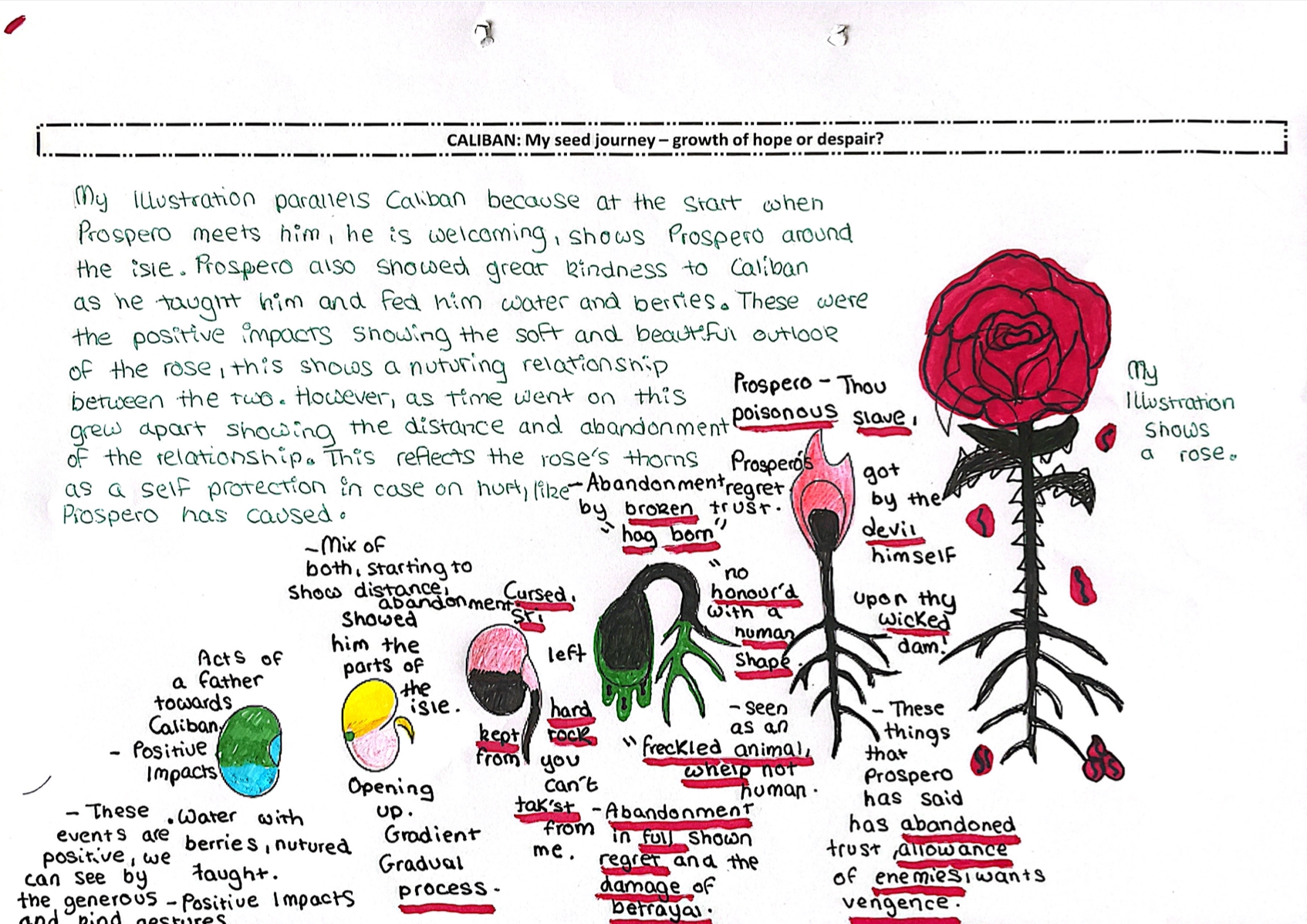
At lunchtime, we met Rebecca Bollands, Headteacher at Earlsdon primary and she took us to their community allotment and orchard garden. We were impressed by how organised the garden is and the wonderful way that parents and the community take part in growing the food from seed, harvesting the crops and sharing the produce. The students find out about the science of seeds and sustainable food growth as well enjoying the fruits of their labour.
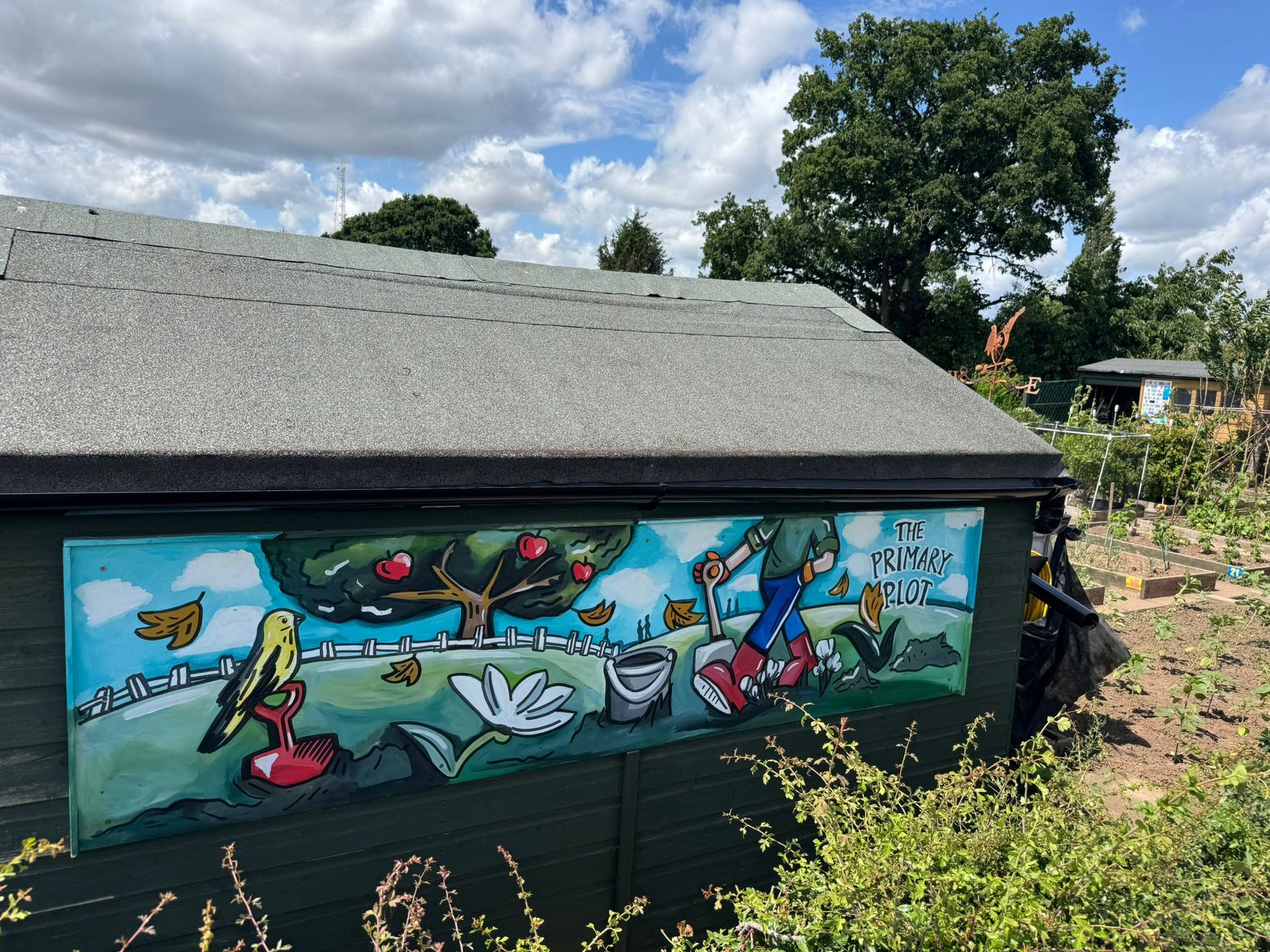

We then went to visit the Herbert Gallery where we were shown around an inspirational display of children’s work.
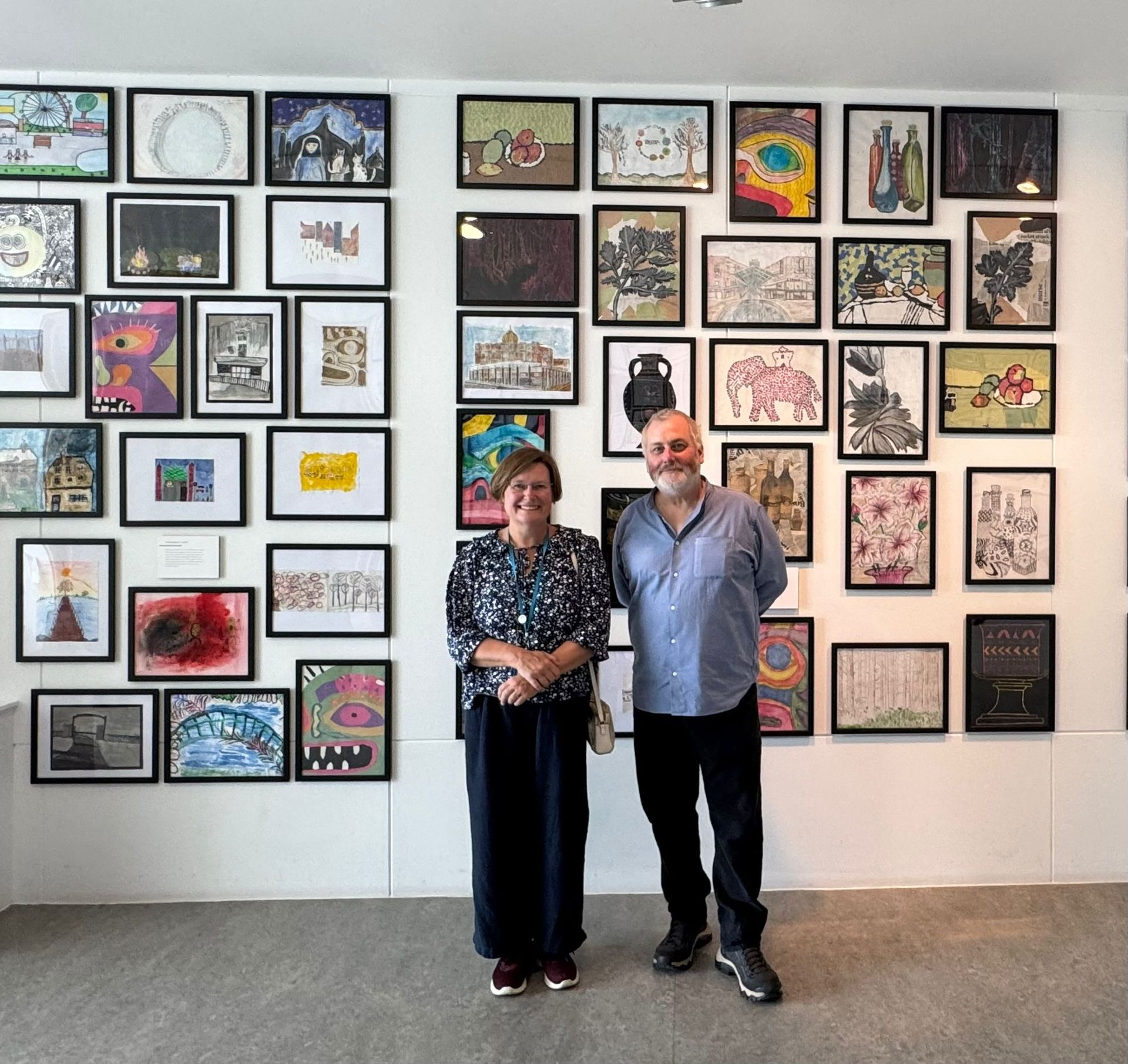
From Scribbles to Masterpieces
An exhibition of Coventry schools' artwork, exploring the stages of children's art development.
In 1947, Dr Viktor Lowenfeld published his famous text, Creative and Mental Growth, which argues that there are six clearly defined stages of artistic development and that these stages can be witnessed in the artworks of children. It is a universal theory about how children, on average, grow and develop in art. Children all over the world, regardless of race, socioeconomic factors and culture go through these stages, although these can be fluid and dynamic and children may proceed at different rates.
In this exhibition the curators group artwork made by the children of Coventry made in response to the theme of Community, into the six stages of artistic development to understand and illustrate the different stages and understand children's art development.
The exhibition runs to 31st August so do go and see it if you can
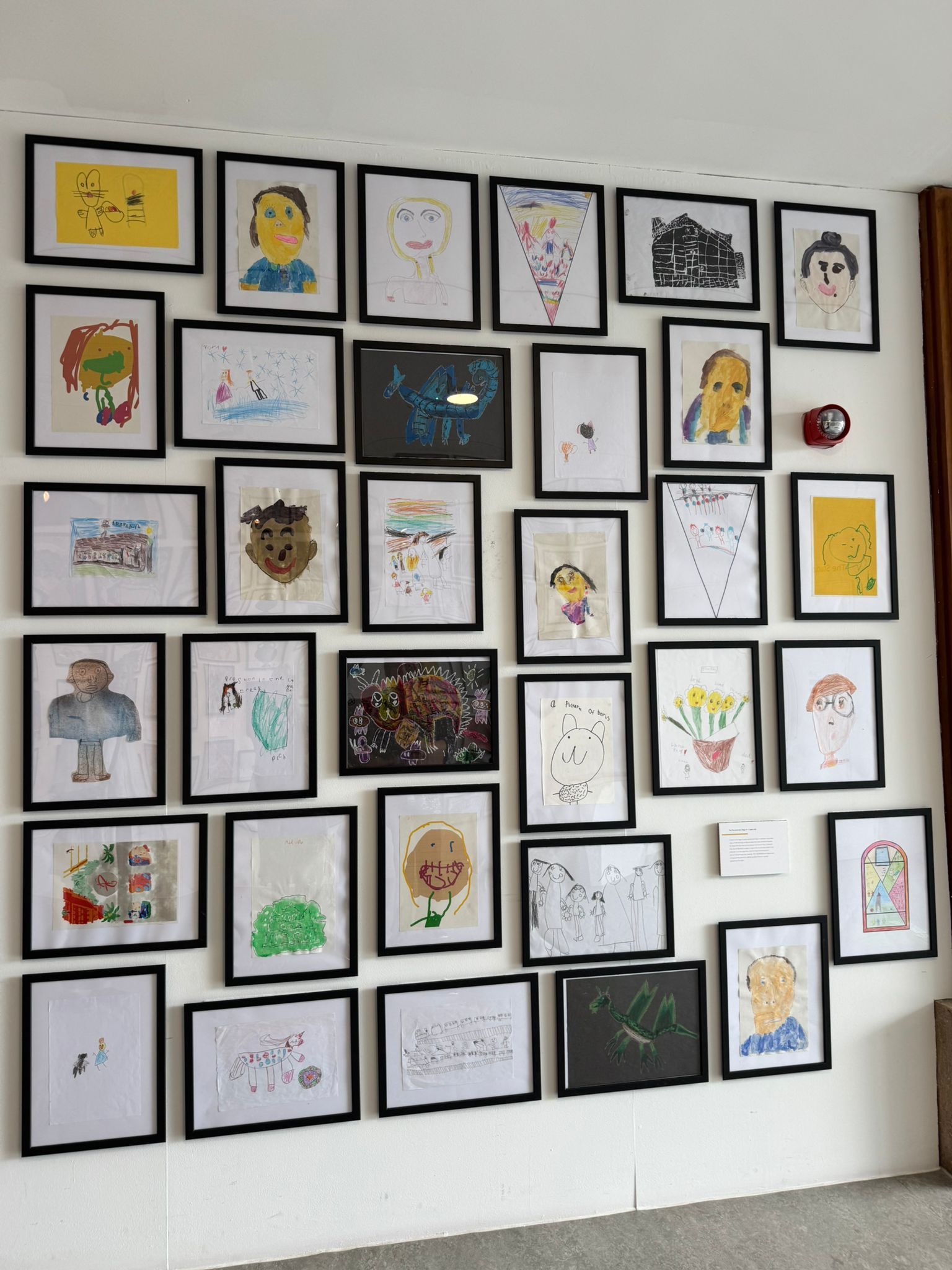
In the evening. We attended MUSIC Coventry Music Trust would like to invite you to a reception before the Coventry Music Summer Showcase taking place at the Butterworth Hall, Warwick Arts Centre June 24th 2025 as part of the inaugural Coventry Schools Arts Week 2025. This will be a fantastic night featuring a number of Coventry Music groups, members of Warwick University Orchestra and a massed choir of 300 children from across the city.

Coventry is unique as a city in the UK as it works to ensure that all Coventry schools have the opportunity to become part of the ASPnet programme and they are encouraging all schools in the city to join, it is free and it connects schools across 182 countries.
If you are interested in joining you can find out more here: https://www.unesco.org/en/aspnet
If you have any questions Ann Beatty (CEO of the Steve Sinnott Foundation) is the ASPnet Co-ordinator for the UK programme and you can email her ann.beatty@stevesinnottfoundation.org.uk to find out more.




